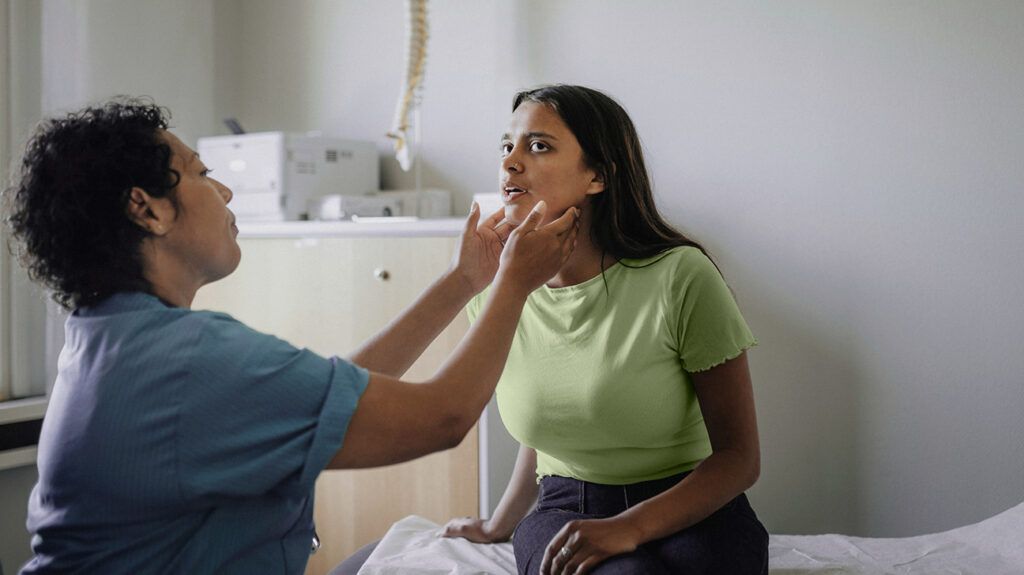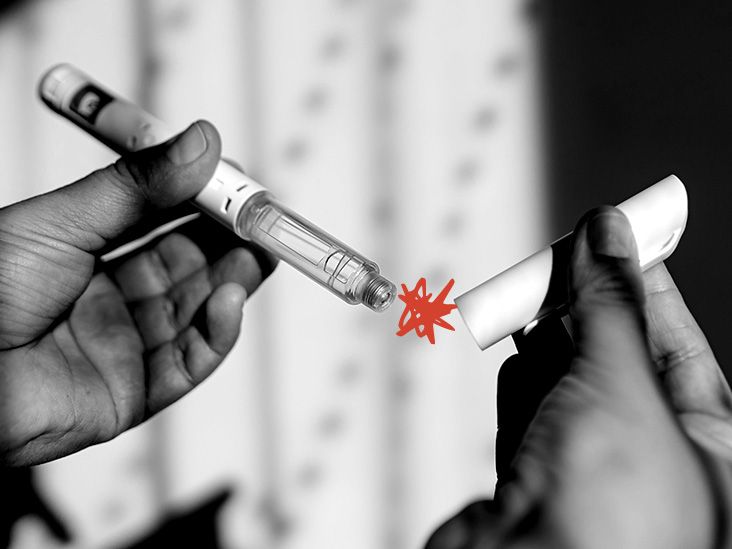Without treatment, hypothyroidism can lead to various medical issues, such as heart and kidney problems, nerve issues, or goiter. Low thyroid hormone levels can also interfere with fertility and pregnancy.
The thyroid is a gland in the neck that produces hormones. These play a key role in how the body uses energy. As thyroid hormones support the function of several organ systems, people who do not manage their symptoms effectively may experience complications across their bodies.
Hypothyroidism occurs when the thyroid does not produce enough thyroid hormone. It is a lifelong condition that requires ongoing management with supplementary thyroid hormones.
This article explains complications that may occur if hypothyroidism goes without treatment.

Goiter occurs when the thyroid gland swells, leading to a lump in the throat. It is the result of thyroid overstimulation, as the body tries to increase levels of thyroid hormone, or thyroxine.
Goiters due to hypothyroidism tend to grow slowly, according to a
A daily thyroid hormone supplement can help restore thyroid hormone levels and prevent further goiter growth. However, some people with goiter may have too much scar tissue to reduce thyroid swelling to a typical size.
Some kidney symptoms of hypothyroidism are similar to the effects of kidney disease.
According to a 2022 case study, hypothyroidism can cause several different problems with the kidneys, including:
- reduced blood flow to the kidneys
- narrowing of the small blood vessels inside the kidneys
- less ability to filter waste and remove excess fluid from the body
- increased water retention, meaning the body holds onto more water
- weaker control of sodium levels
In the case study, supplementing thyroid hormone resolved these acute kidney symptoms.
A
Hypothyroidism can increase a person’s risk of cardiovascular disease unless they receive treatment. Low thyroxine levels can trigger an increase in blood cholesterol levels.
High cholesterol can lead to atherosclerosis, which means deposits of fatty plaque
People who have high cholesterol may benefit from a test for hypothyroidism, as they may not know they have thyroid problems.
Untreated hypothyroidism may lead to problems with cognition, or thought processes.
One 2021 study of 130 individuals found that
However, a
The researchers concluded that there was no general link between hypothyroidism and cognitive problems. However, they stated that people who have blood vessel issues due to hypothyroidism may have a higher risk of issues with cognition. They highlighted a possible connection between thyroid hormones and blood supply to brain regions responsible for memory.
Peripheral neuropathy refers to
More research is necessary to understand the link between peripheral neuropathy in people with untreated hypothyroidism, which is rare. However, a
A note about sex and gender
Sex and gender exist on spectrums. This article will use the terms “male,” “female,” or both to refer to sex assigned at birth. Click here to learn more.
Low thyroxine levels can disrupt the menstrual cycle, contributing to reduced fertility in females.
Without treatment, hypothyroidism
- high prolactin levels, which can affect ovary function
- cycles that do not produce eggs
- an altered luteal phase, which can affect levels of a sex hormone called progesterone and reduce the likelihood of pregnancy
Hypothyroidism-induced infertility can be reversible with thyroid hormone supplementation, according to a
Learn more about hypothyroidism and the menstrual cycle.
Myxedema is an extremely rare but life threatening condition that can occur due to severely low thyroxine. It can lead to symptoms such as confusion, low body temperature, and sleepiness.
Recognizing myxedema early is vital for recovery. Other symptoms include:
- reduced breathing capacity
- mobility issues
- sudden hair loss
- delayed ability to relax reflexes
- rapid switches between high and low blood pressure
- swelling in the abdomen
- a buildup of stool in the colon
- slow heart rate
- dry, doughy, cool skin
- swelling under the skin
Myxedema requires emergency in-hospital treatment and an intravenous infusion of thyroxine replacement medication via the vein. Depending on which symptoms occur, an individual might also need breathing assistance, steroid medication, or antibiotics. Myxedema may have a mortality rate ranging from
A person with hypothyroidism will need to take a manufactured form of thyroxine for the rest of their life.
The
Regular blood tests will help a healthcare professional decide the correct dose of thyroid medication. People may receive a lower dose at first, then build up depending on how the body responds. Symptoms may take a few months to improve.
The following are answers to some questions people frequently ask about hypothyroidism.
How long can you go without treating hypothyroidism?
No studies have examined the exact amount of time a person can manage their hypothyroidism after stopping medication. However, symptoms will generally start to return soon after stopping.
Levothyroxine has a half-life of around
What are the worst symptoms of hypothyroidism?
Myxedema is the worst complication of untreated hypothyroidism and can be fatal. However, it is a rare complication.
This causes symptoms across the body,
- confusion
- lethargy
- hypothermia
- breathing issues
- movement problems
- alopecia
- nerve issues
- quick changes in blood pressure
- swelling in the abdomen
- fecal impaction
- slow heart rate, also known as bradycardia
- dry, doughy, cool skin
- swelling under the skin
Hypothyroidism requires lifelong treatment using supplementary thyroid hormones. Those who do not start treatment or discontinue it may experience goiter, heart and kidney issues, infertility, nerve damage, and problems with cognitive function. In extremely rare but severe cases, a person might experience myxedema, which can be fatal.
People with concerns about thyroid hormone supplement side effects need to speak with a healthcare professional instead of suddenly stopping the use of thyroid medications.


